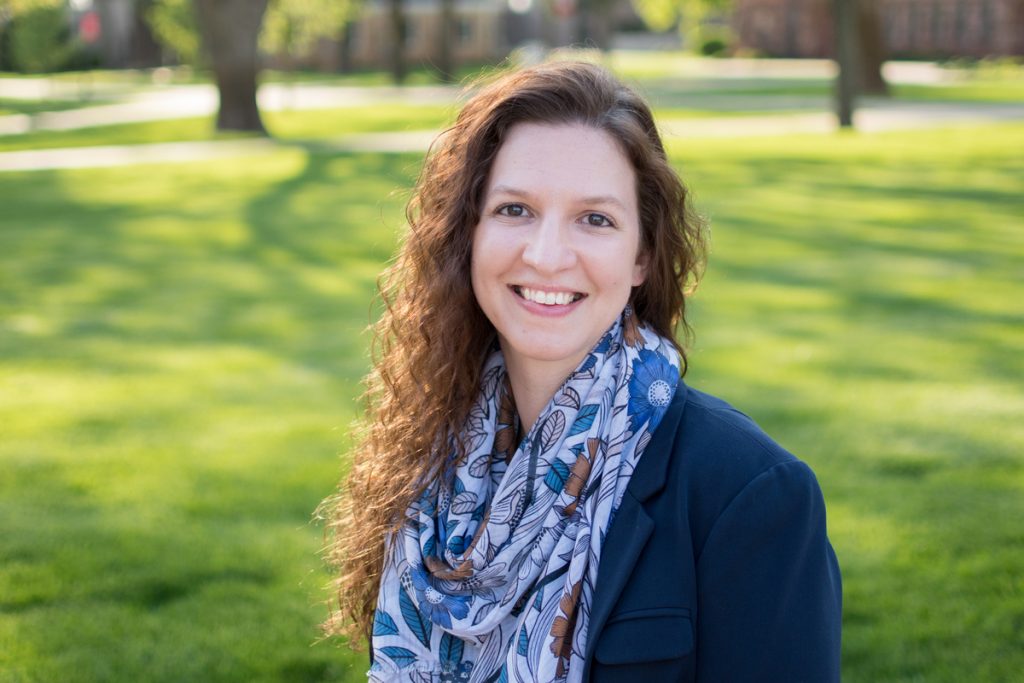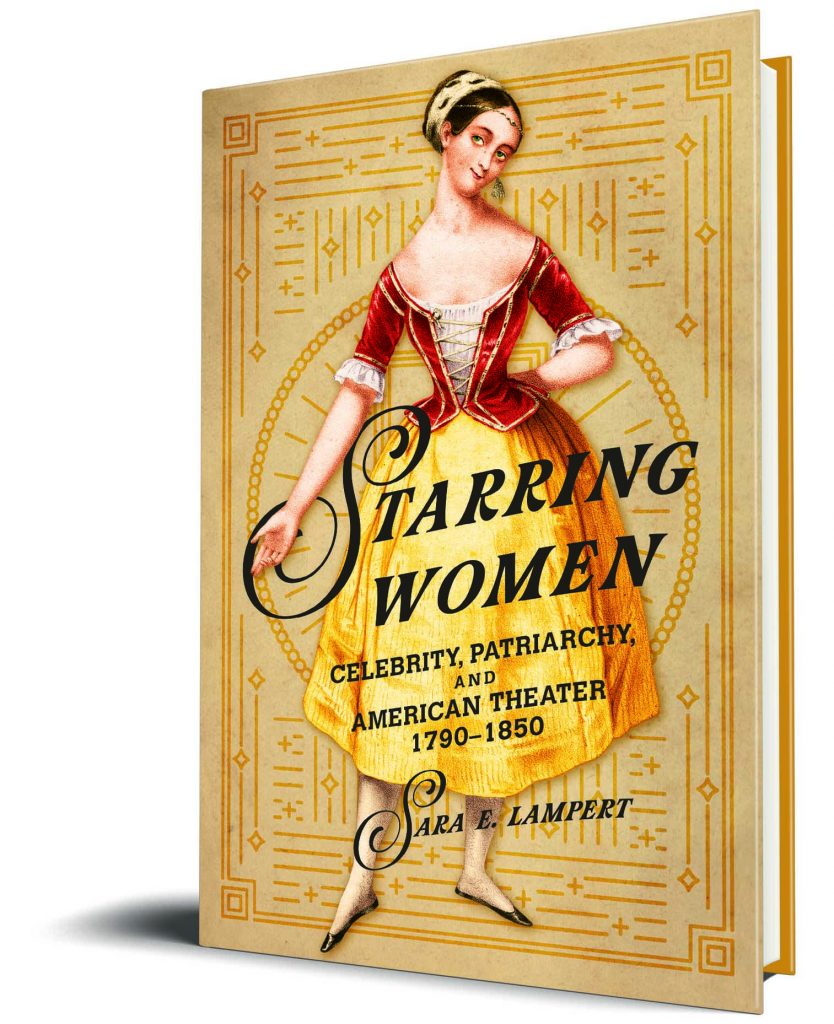Author, Sara E. Lampert, of Starring Women: Celebrity, Patriarchy, and American Theater, 1790-1850 answers questions about her purpose for writing, book influences, and discoveries about entertainers for her book.
Q: Why did you decide to write this book?
I have had a long fascination with women in entertainment, but whenever I talked with people about my work I was struck by assumptions, for example, that women weren’t a big part of early US entertainment culture or that they were all social rebels. I wanted this book to help readers see women’s centrality to the growth of early US entertainment culture and modern celebrity, but also convey the complexity of their lives and the contradictions of their celebrity.
Q: Who were your biggest influences?
Reading Robert Allen’s Horrible Prettiness: Burlesque in American Culture in college changed everything for me. His book is really why I decided to major in history and go on to a PhD. I’ve been fortunate to have mentors and colleagues who are exceptional cultural historians and share my love of popular culture, and also encouraged me to pursue the feminist questions driving this project.
While I was writing the book, Jacky Bratton’s New Readings in Theatre History opened up a completely new way of reading my sources. I also dug into the many excellent works of feminist biography–Erica Armstrong Dunbar’s Never Caught, the Story of Ona Judge, Alfred Young’s Masquerade: The Life and Times of Deborah Sampson, Continental Soldier, and Jill Lepore’s Book of Ages: The Life and Opinions of Jane Franklin–that show what skilled historians can do with a fragmentary and contradictory historical record. These books have really smart things to say about how we write women’s lives. I hope I have done those lessons justice!
Q: What is the most interesting discovery you made while researching and writing your book?
I loved working with images of dancers, from sheet music covers to pornographic lithographs. My favorite archival discovery is this pair of dancer lithographs with peekaboo tissue skirts that lift up to reveal genitalia. I opened the folder and actually let out a shout in the Houghton Library reading room at Harvard University. Those lithographs led me to think more about entertainers’ different publics and the competing narratives and representations of them.

Q: What myths do you hope your book will dispel or what do you hope your book will help readers unlearn?
Feminist scholars have done an excellent job dispelling the myth that women were absent from public life in the nineteenth century, but I also want readers to see starring women as a vibrant if contested part of public life in the early US. They were very much part of conversations about “woman’s place.” They were controversial. But they were still very very popular with both men and women through the US.
I also want readers to question assumptions about female celebrity and women’s autonomy and consider the enduring misogyny of our celebrity culture. Many of the patriarchal structures around entertainment that I discuss are prevalent today, as the #MeToo moment has made very clear. Meanwhile, we continue to hold starring women to impossible standards as public figures. I want readers to ask themselves what our entertainment and celebrity culture shares with the early US and what has changed.
Q: What is the most important idea you hope readers will take away from your book?
Starring women were a major part of early US culture. They grew the entertainment industry. Both women and men flocked to theaters to see them in a delightful array of entertainments. But while the growth of starring gave some women and girls access to incredible wealth and prominence, the industry was also governed by exploitative patriarchal structures and gendered double standards. We have to be really careful in how we read the existing sources to get at these complex stories.
Q: What do you like to read/watch/or listen to for fun?
Right now, I’m hooked on Hilary Mantel’s Wolf Hall trilogy. I am also a huge Star Wars fan, from the movies to the comics to the books. I read a lot of Star Wars novelizations while writing! Though I barely keep up with all the good TV these days, I can always count on NPR’s Pop Culture Happy Hour podcast hosted by Linda Holmes to point me to shows and movies that tell interesting, nuanced, and diverse stories about women’s and girls’ lives. We are in an incredible moment for feminist storytelling and I hope to see it continue.

